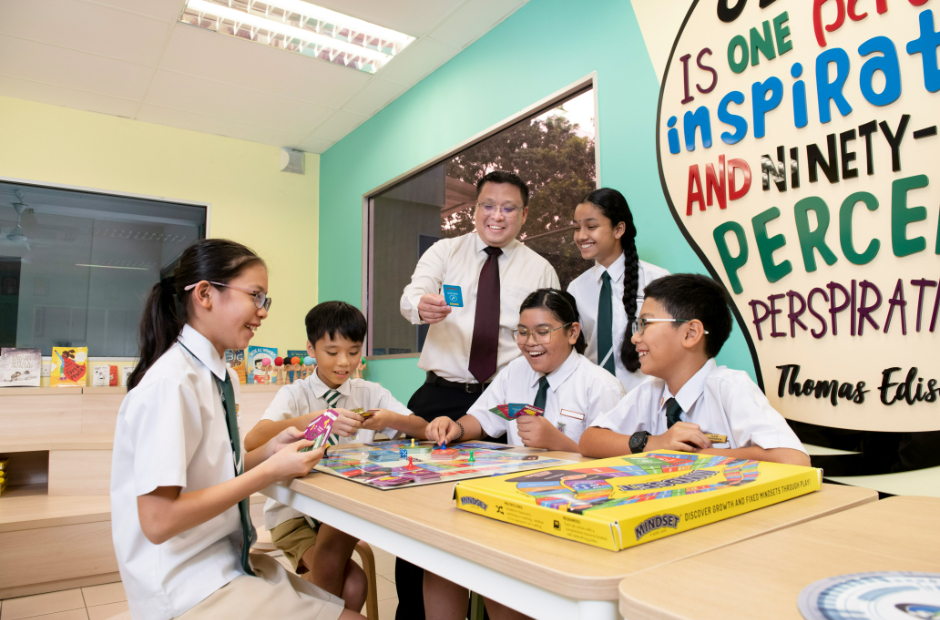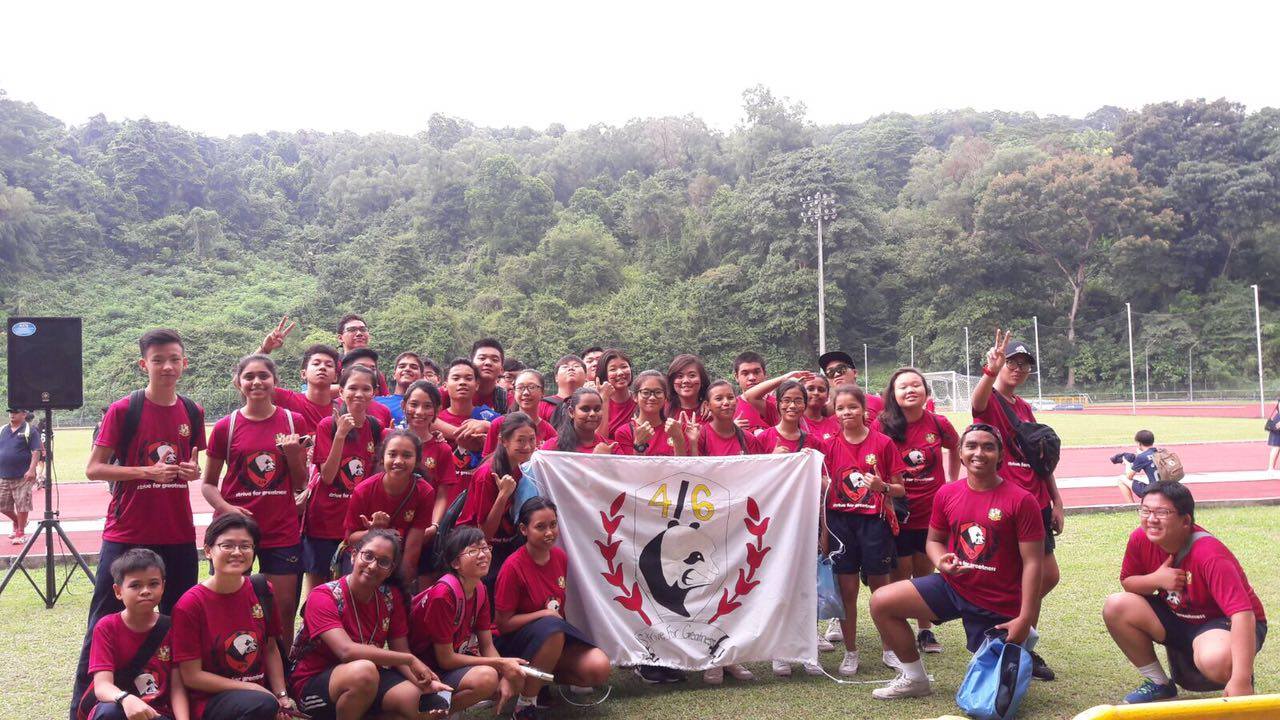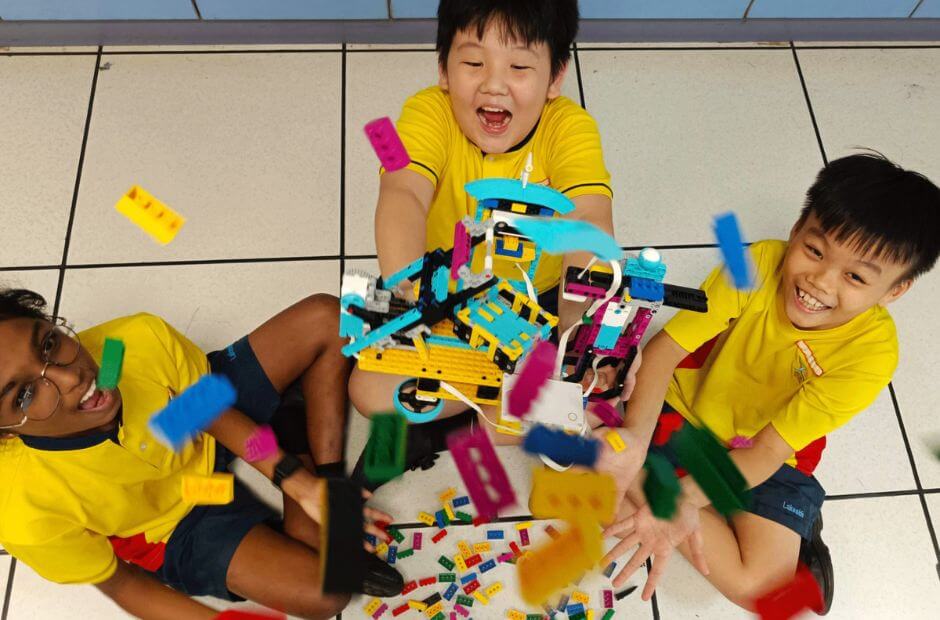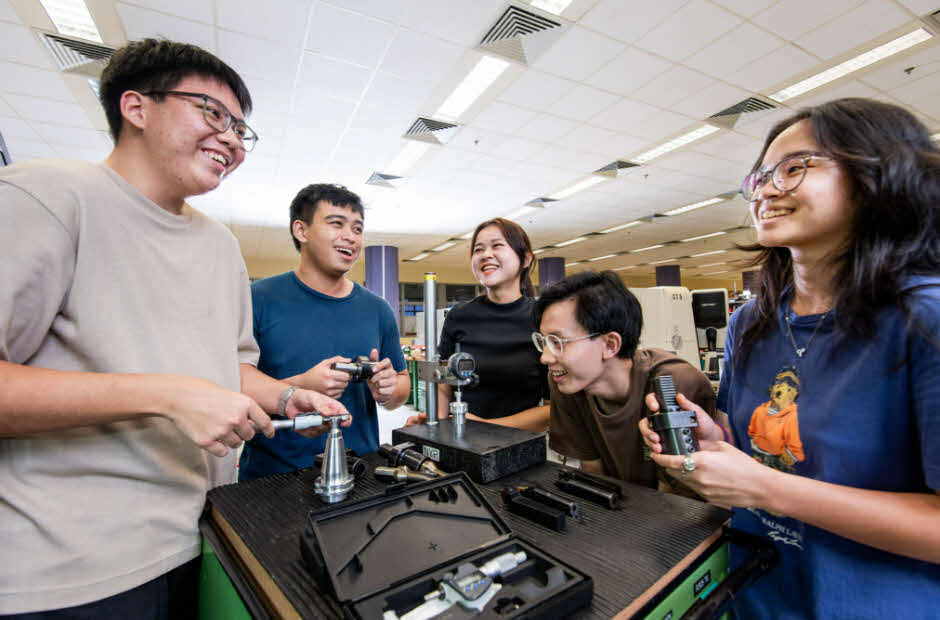Mr Kelvin Koh makes sure that no group of students escapes his care. St Anthony’s Primary School’s Year Head develops initiatives to cater to all students, including the vulnerable ones and the graduating cohort. Mr Koh is a 2023 President’s Award for Teachers finalist.
Imagine giving every primary school student a handsome sum of $500 a week for pocket money.
Then start charging them for the use of the classroom and furniture, or a loan of stationery if they forget to bring their pencil cases. What about a fee for every time they use the toilet?
The thrill quickly fades as the idea sinks in that facilities, benefits, actions and treats come at a price, thanks to this scheme hatched by Mr Kelvin Koh to give them “money” in the form of ice cream sticks, to “spend” as they like.
To teach good values, critical thinking, and prudence in the real world, the English and Social Studies teacher at St Anthony’s Primary School also allows students to “earn money”.
Students can earn more ice-cream sticks if they answer questions correctly, are made PE champions, or performed a good deed. As the students found their “wallets” emptying faster than they were refilling them, they quickly learned to negotiate with Mr Koh, such as asking for bundle deals for washroom visits, he recalls with a laugh. “It showed they were really thinking.”
Teaching values to tweens and at-risk students
As the school’s Year Head (Upper Primary) of the Primary 5 and 6 levels, Mr Koh is constantly devising innovative ideas to teach his students values and life skills. “There’s a lot of focus among ‘tweenagers’ wanting to be affirmed and acknowledged, often by doing things to get attention online,” he notes. “We want to teach them how to affirm themselves.”
“Without helping our children to learn how to live, they will become mere vessels of knowledge and lack the competencies to harness it for the good of themselves and those around them.”
Mr Kelvin Koh
A few years ago, he spearheaded “After School Care – Engage, Nurture, Discover” (ASCEND) to support students who do not have strong parental support and supervision at home. With ASCEND, these students stay on after school for an hour to complete their homework before participating in activities such as soccer, badminton or craft-making. Each month, they also try new activities like bowling, making sandwiches, or just helping out around the school.
One of the key qualities Mr Koh would like students to embrace is dignity, which he defines as the ability to respect and appreciate oneself. Feeling cared for, and feeling capable, lends dignity.
“Without helping our children to learn how to live, they will become mere vessels of knowledge and lack the competencies to harness it for the good of themselves and those around them,” he adds.
Mr Koh is also instrumental in building a supportive community around students from troubled backgrounds. He once observed a transfer student missing his former classmates and teachers, and was struggling to adjust to his new environment. He approached the boy’s former form teacher to arrange for them to meet, and to get his ex-classmates to write him some farewell messages, to remind him that they still cared for him.
Mr Koh spent more time with him and noticed his interest in drawing. He tried to encourage him to practise his art skills in school. The boy was touched by his new teacher’s concern.
Says Mr Koh, “It’s about tapping on their strengths to help them have a sense of self-worth and acceptance from the people around them.”
Ready, Set, Grow! for PSLE students
In their milestone year, students taking the PSLE exams may need more social and emotional support. Mr Koh developed the “Ready, Set, Grow!” initiative as part of the Primary 6 students’ Back to School schedule.
They participate in a three-day workshop to learn useful skills such as time management and drawing mind maps to help them remember key points. There are also motivational talks to teach them how to set targets and persevere through their challenges.
There is a special reason the workshop is run by external facilitators. “When students hear advice from different people, they may realise it’s not just their parents or their teachers saying the same thing,” Mr Koh says, “and they may be more receptive.”

A heart for those with special needs
As part of his work, Mr Koh attended the MOE’s Teachers trained in Special Needs (TSN) modules that equip teachers to support students with special educational needs (SEN). As he has a son with autism, he also has first-hand experience with some of the challenges they face attending mainstream school, such as having meltdowns. “Because of my home experience, I tend to be more sensitive to students with SEN and am also better able to manage some of the SEN situations that arise in school.”
His comprehensive sharing at one of the TSN modules caught the attention of the organiser, who subsequently invited him to be interviewed as part of a video resource to help teachers engage more effectively with parents of children with SEN.
Inspiring other teachers in their professional development
Last but certainly not least, Mr Koh pays special heed to the professional learning and development of his peers. As Year Head, he shared about St Anthony’s ASCEND Programme with other Year Heads from the same school cluster. At the national level, Mr Koh shared his school’s programmes at the Uplift and Educational Support Seminar 2022 as part of MOE’s contribution to the multi-ministry UPLIFT programme for disadvantaged children.
If his 18 or so years teaching has taught him anything, it is “to love what you teach, but love who you teach more”, he says. “When former students tell me that they chose to become a teacher because of their interactions with me, I know that that would be my greatest contribution to teaching – because our country would have one more person stepping forward to make a positive impact on our future generations.”






